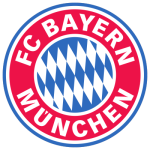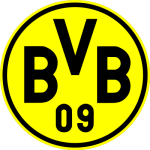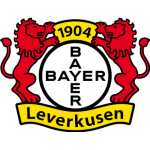
Bayern Munich
Borrusia Dortmund (BVB)
RB Leipzig
Bayer Leverkusen
Bundesliga News
History
The Bundesliga was established in 1963 to create a unified, nationwide league in Germany, replacing the regional league system that had been in place. Prior to its formation, German football was organized in a fragmented manner, with regional leagues determining the best teams through various playoff systems. The introduction of the Bundesliga marked a significant shift towards a more standardized and competitive structure for German football. The inaugural season featured 16 teams, with 1. FC Köln emerging as the first champions. Over time, the league expanded to 18 teams in 1965, providing more clubs the opportunity to compete at the highest level.
A pivotal moment in the league’s history occurred in 1990 with the reunification of Germany, which led to the inclusion of East German clubs into the Bundesliga system. This integration helped to unify the football landscape in Germany, further enhancing the league’s competitive nature. Throughout its history, the Bundesliga has been known for its passionate fan base, modern stadiums, and strong financial health. The league has produced numerous world-class players and has seen its clubs achieve significant success in European competitions.
Bayern Munich has been the most dominant club in the league, winning the majority of titles, especially in recent decades. Other notable clubs, such as Borussia Dortmund, Borussia Mönchengladbach, and Hamburger SV, have also made significant contributions to the league’s history. The Bundesliga continues to evolve, embracing modern football trends while maintaining its core principles of fan involvement and financial stability. Today, it stands as one of the premier football leagues in the world, known for its exciting matches, high-scoring games, and vibrant supporter culture.
Competition Structure:
- Format: Each team plays 34 matches (home and away against each other team).
- Points System: Win: 3 points, Draw: 1 point, Loss: 0 points.
- Relegation: Bottom two teams are relegated to 2. Bundesliga, and the 16th-placed team enters a playoff with the third-placed team from 2. Bundesliga.
Major Clubs:
- Bayern Munich: Most successful club with numerous titles, dominating the league in recent decades.
- Borussia Dortmund: Regular title challengers, known for their strong fan base and youth development.
- Borussia Mönchengladbach: Prominent in the 1970s, winning several titles.
- Hamburger SV: Only club to have played in every Bundesliga season until relegation in 2018.
Key Achievements:
- Most Titles: Bayern Munich
- Highest Points in a Season: Bayern Munich (91 points, 2012-13 season)
- Longest Unbeaten Run: Bayern Munich (53 games, 2012-2014)
European Success:
Bundesliga clubs have been successful in European competitions, particularly Bayern Munich, which has won the UEFA Champions League multiple times. Borussia Dortmund also won the Champions League in 1997.
Promotion and Relegation:
- Automatic Relegation: Last two teams.
- Relegation Playoffs: 16th-placed team in Bundesliga plays against 3rd-placed team in 2. Bundesliga.
- Promotion to Bundesliga: Top two teams from 2. Bundesliga are automatically promoted
League System:
- 1. Bundesliga (Tier 1)
- 2. Bundesliga (Tier 2)
- 3. Liga (Tier 3)
- Regional Leagues (Tier 4 and below)
Youth Development:
- Bundesliga is known for its strong emphasis on youth development, with many clubs operating highly regarded academies.
- The league has produced numerous world-class talents who have gone on to achieve international success.
Stadiums and Fans:
- Average Attendance: Among the highest in Europe.
- Notable Stadiums: Allianz Arena (Bayern Munich), Signal Iduna Park (Borussia Dortmund), Olympiastadion (Hertha BSC).
- Fan Culture: Known for passionate and dedicated fan bases, with a strong tradition of supporter involvement in club governance.
Financial Structure:
- 50+1 Rule: Ensures that club members (fans) hold the majority of voting rights, preventing outside investors from taking over clubs.
- Revenue: Generated from broadcasting rights, sponsorships, ticket sales, and merchandise.
Notable Records:
- Top Scorer: Gerd Müller (365 goals)
- Most Appearances: Karl-Heinz Körbel (602 games)
Current Trends:
- Youth Integration: Increased focus on integrating young talents into first teams.
- Tactical Evolution: Adoption of high-pressing and attacking football styles.
Notable Teams
- Founded: 1900
- Location: Munich, Bavaria
- Stadium: Allianz Arena (Capacity: 75,000)
- Domestic Success: Record 31 Bundesliga titles
- European Success: 6 UEFA Champions League titles
- Key Players: Robert Lewandowski (former), Manuel Neuer, Thomas Müller
- Notable Achievement: Treble winners (Bundesliga, DFB-Pokal, UEFA Champions League) in 2013 and 2020
- Founded: 1909
- Location: Dortmund, North Rhine-Westphalia
- Stadium: Signal Iduna Park (Capacity: 81,365)
- Domestic Success: 8 Bundesliga titles
- European Success: 1 UEFA Champions League title (1997)
- Key Players: Marco Reus, Erling Haaland (former), Mats Hummels
- Notable Achievement: Known for their passionate fan base and youth development
- Founded: 2009
- Location: Leipzig, Saxony
- Stadium: Red Bull Arena (Capacity: 42,959)
- Domestic Success: Regular top-four finishes in Bundesliga
- European Success: Reached UEFA Champions League semi-finals in 2019-20
- Key Players: Christopher Nkunku, Dani Olmo, Timo Werner (returned)
- Notable Achievement: Rapid rise through German football leagues, backed by Red Bull investment
- Founded: 1904
- Location: Leverkusen, North Rhine-Westphalia
- Stadium: BayArena (Capacity: 30,210)
- Domestic Success: 1 DFB-Pokal title
- European Success: UEFA Champions League runners-up in 2002
- Key Players: Florian Wirtz, Patrik Schick, Moussa Diaby
- Notable Achievement: Known for strong performances in both domestic and European competitions, despite not winning a Bundesliga title
Key Points for Bundesliga Enthusiasts:
- Founding: 1963, replacing regional leagues.
- Top Teams: Bayern Munich, Borussia Dortmund.
- Fan Involvement: 50+1 rule ensures fan ownership.
- Youth Development: Strong emphasis on developing young talents.
- Financial Health: One of the most financially stable leagues in Europe.
- European Success: Bundesliga teams frequently perform well in European competitions.











